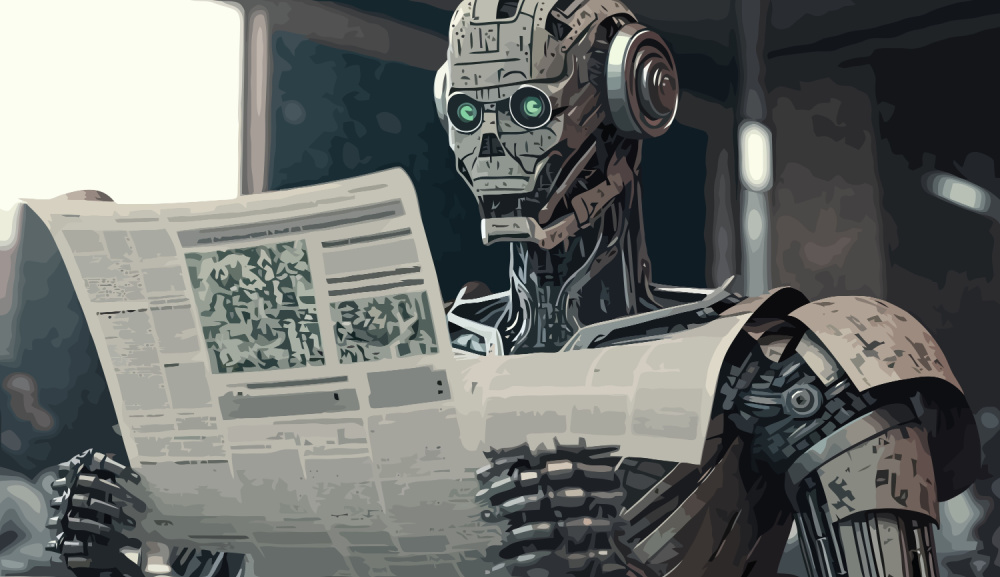This week AI got the whole gang together at Capitol Hill to give AI regulation the old college try.
Stability AI might finally make some money with its new AI text-to-music generator. And Coca-Cola thinks AI knows what will tickle your tastebuds in the year 3000.
Let’s dive into this week’s AI news.
Running up that Hill
The big boys of AI got together with lawmakers and civil rights advocates at the first AI Insight Forum to discuss how to keep AI in check. They mostly agreed that AI regulation was a good idea but there was little consensus on exactly how to do it.
In a positive sign that Chuck Schumer may actually have the foresight and planning skills for the job, Elon Musk and Mark Zuckerberg were placed on opposite ends of the long table.
Elon Musk and Mark Zuckerberg seated at opposite sides of the U-shaped table for the AI insight forum: pic.twitter.com/xaJLxo2Pe1
— Frank Thorp V (@frankthorp) September 13, 2023
US Senators also proposed licensing for powerful or “high-risk” AI models and federal oversight. There’s already a growing list of tech companies joining the voluntary framework on AI so do we really need something like the ‘FBAI’? They seem to think so.
Some climate activists were aggrieved that they didn’t get an invite to the closed-door proceedings. They went old school and wrote a letter to Schumer asking him to add AI’s climate impact to his to-do list.
When you see how much water Microsoft uses to produce its AI tech you begin to realize that they may have a point.
Besides AI adding fuel to our burning planet, the other hot topic this week was “ghost workers” at top AI companies. There’s definitely a dark side to AI that needs attention.
Stability hopes AI music goes Ka-ching
Stability AI has released some cool AI products but needs to find a way to make some money. It released Stable Audio, a text-to-music generator that produces CD-quality music. It works pretty well when their servers can keep up. For a change, the company hasn’t released the model as open-source.
Have they finally realized they need to charge people to make money?
If you manage to generate an absolute hit, don’t bother to prepare your acceptance speech just yet. The Recording Academy of the United States says AI-generated songs cannot be considered for the Grammys.
Once AI becomes self-aware this move may actually hurt its feelings.
Coca-Cola – Make it real with artificial intelligence
This week Coca-Cola unveiled “Y3000,” the first soda flavor co-created by AI. The Y3000 moniker is a reference to the company’s hope that Coke will continue to refresh 1,000 years from now.
Is this refreshing optimism, or just them saying ‘Drink it while you can’?
We’d probably give it a go if it wasn’t for the fact that AI insisted on going the zero sugar, zero calories route. Apparently, in the future, there is no joy.
The battle of the AI models
Absolutely everyone seems to be releasing an AI model at the moment. Anthropic launched Claude Pro and pitched it as a viable alternative to ChatGPT Plus.
The AI action in the Middle East is ramping up with the release of Falcon 180B. The LLM’s performance is impressive but it has some issues.
Further East, China’s Ant Group released financial LLMs for wealth management. If an AI suggested you slow down your credit card swiping would you listen?
And following hot on the heels of Llama 2, Meta is secretly building an advanced model to take on GPT-4.
OpenAI must be feeling great that its GPT-4 is held out as the benchmark. But is it just me, or has the free version of ChatGPT been slacking lately?
With AI models flying off the shelves, you’re spoilt for choice if you’re looking for an alternative.

Will AI write copyright right?
Lawyers continue to argue AI vs. copyright issues. Apparently, it’s open season for AI lawsuits, as even more authors are suing OpenAI and Meta over copyright infringements.
Don’t look so smug. You could be next. But Microsoft says it will pay your legal fees if you use Copilot and get caught offside of copyright law.
The Author’s Guild whined to Amazon about the amount of AI-authored books filling up Amazon’s shelves. Amazon agreed to require authors to disclose if they used AI to write the book.
There’s pretty much no way to reliably detect AI text anymore, so maybe Amazon hopes authors will just pinky swear. Either way, Amazon still isn’t disclosing which books may have been written by AI.
Nvidia streaks ahead
It’s been a busy week for Nvidia. The company has partnered with Tata and Reliance to bring large-scale AI to India.
It also released new software that supercharges the inference performance of its H100 GPUs. The jump in performance the free software will deliver to existing hardware is really impressive.
Its new Grace Hopper Superchip, GH200 GPUs passed the industry standard MLPerf tests with flying colors, while AMD mumbled something about price-performance parity.
Last week we reported on Tesla not being able to get hold of enough Nvidia GPUs and having to build its own in-house supercomputer Dojo as a result. Now analysts are saying Dojo could challenge Nvidia.
Once Musk is done training his autonomous vehicle software, Dojo could supply the needs of a lot of other companies that have been impatiently waiting for their Nvidia orders to be filled.
Considering its order book, I don’t think Nvidia is too worried.
AI and retina scans – This time it’s a good thing
The dystopian reality of Sam Altman’s orb scanning your eye to prove you’re human aside, AI and retina scans can be a good thing.
Researchers have found a way to make it even easier and cheaper for AI to check your retina for signs of things like Parkinson’s, heart disease, and ocular diseases.
Medical experts put ChatGPT’s pediatric exam skills to the test and the results weren’t great. Granted, they were using GPT-3.5, and GPT-4 would have done a lot better.
Considering the weird answers I’ve been getting from ChatGPT lately I don’t think I’d let it loose in a children’s hospital just yet.
‘Thank you for correcting me. I should not have suggested amputation for a grazed knee. As an AI model….’
In another win for AI in medicine, the startup Inceptive is doing some really interesting research. It uses AI to design mRNA molecules for new drugs and vaccines. They even picked up a $100m investment from Nvidia.
Apple is super chilled about AI
As the rest of the tech world goes full-tilt at AI, Apple seems to be taking it slow. That being said, the new iPhone 15 has some subtle but very useful AI built-in.
You’ll probably still need to set your phone to airplane mode while flying. But your next flight to the UK could have an AI handling the aircraft control tower.
If it goes wrong let’s hope the emergency crews have the latest tech. The Singaporean government is experimenting with equipping its firefighters with AI glasses.
In other news…
Here is some of the other AI clickbait we couldn’t resist:
- ChatGPT diagnosed a kid’s medical issue correctly after 17 doctors failed.
- OpenAI finally owns the chatgpt.com domain. Must have been pricey.
- Scala Biodesign uses AI to engineer new proteins one molecule at a time.
- Heygen’s new voice translator and lipsync is next level.
Testing out @HeyGen_Official translation on French and German. I don’t speak either language so let me know if it sounds natural if you do.
I hope if you pay you can turn off the color correction.
It didn’t work on my phone so I had to upload on my pc.https://t.co/FMJp9sJEBI pic.twitter.com/iF5eONAQ3c— Jon Finger (@mrjonfinger) September 11, 2023
And that’s a wrap of this week’s AI news. We’re still patiently waiting for the Musk-Zuckerberg fight but, let’s hope they find the time to help Chuck with his project first.
Have you found any Y3000 on the shelves yet? We’d love to know what it tastes like. And if you managed to use Stable Audio to generate a killer track for our weekend vibes, please send it our way.





